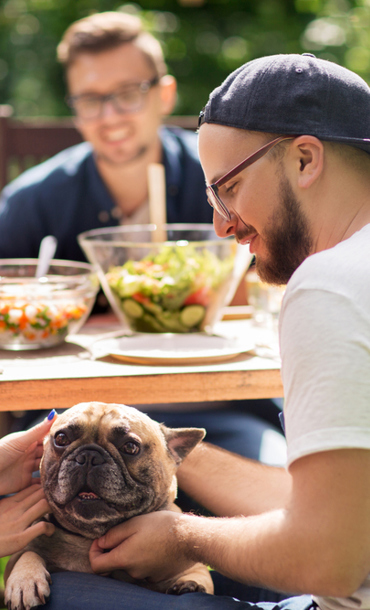Your friends, family and pets

Seeing your family and friends
We support you to see the people who are important in your life such as family and friends.
If you are under 18
Your social worker will have a plan in place to keep you in touch with family members and other important people to you.
If you are not seeing the people you want to see, talk to your social worker or conference reviewing officer.
When you turn 18
We can help you keep in touch with people you've had arrangements to see before you were 18. For more information see the Allowances and assistance for care leavers page.
Other important people
For other important people in your life, your personal advisor (PA) will support you to think through and overcome any barriers to keeping in touch.
Seeing family and friends overseas
We know many young people are not from the UK and will have family they will want to see. We understand that family members are important to you and we will help you to stay in touch by supporting you to:
- overcome any barriers to keeping in touch remotely if your family are in a different country
- locate family members in this country
- get help from the Red Cross to make contact with your family members outside of this country
- look at all your options should you wish to visit your family in a different country
Your own children
Young parent group
We have a young parent group who are care leavers who have children. This group support each other and have social events. They meet online and face to face. They offer advice to each other.
If you are interested in joining this group, speak to your PA or our Voice and Participation team.
Advice and support
We know parenting can be hard. There is support available to you, including from our Early Help service. Speak to your PA, health visitor, child’s school or nursery, or contact our Integrated Front Door for help.
Our Integrated Front Door can be contacted during office hours by phoning 01403 229900.
Your PA is not qualified to give advice on parenting matters, so they will need to put you in contact with those who can help.
If you are not living with your child or children they may have, or have previously had, a social worker. If you are experiencing difficulties with your contact with them, speak to your social worker or PA. They will be able to speak to those who can help you.
Pets
We know for many of you pets are really important. You may already have a pet or want one in the future. We want to make sure you are fully informed and ensure you can independently provide and pay for the care it needs when you turn 18.
We will help you understand what they need, how much exercise they will need, feeding them, insurance, and vet bills. Sadly, we can’t make the decision about whether you can have a pet with you. This decision will be made by whoever you live or rent from.
Having a pet could impact what housing choices you have and where you may live in the future. We will help you think this through.
Online relationships
We know you may meet people online. The internet is full of great stuff and you can catch up with friends, chat and play games.
However, you need to be careful about what you do and what information you reveal about yourself. Get the most out of your online time by following these top safety tips:
Be careful about what you share
Protect your online reputation by learning how to manage your digital footprint.
Think before you post
Do not put anything online that you would not want your parents, carers, teachers or friends to see. Once you have pressed send it is no longer private. Find out more about sexting and how to stay in control at Get safe online.
Never share passwords
Use strong passwords with a combination of numbers, letters and characters. Don’t use the same password for different sites and never tell anyone else what your passwords are.
Be careful who you chat to
Don’t accept friend requests from people you don’t know, or share personal information with strangers. Learn the signs that someone may be trying to groom you online.
Use reliable sites
Do not use pirate sites to download content such as games, films and music.
Reporting online problems
If someone has made you feel weird or uncomfortable online you can report it. It could be sexual chat, being asked to do something you don’t want to on webcam or someone asking to meet up. You can:
- talk to someone you trust about it - a friend or family member, social worker or PA
- report somebody to Child Exploitation and Online Protection by calling 101 and speaking to the police
- if you are under 19 years old, contact ChildLine for advice and support
